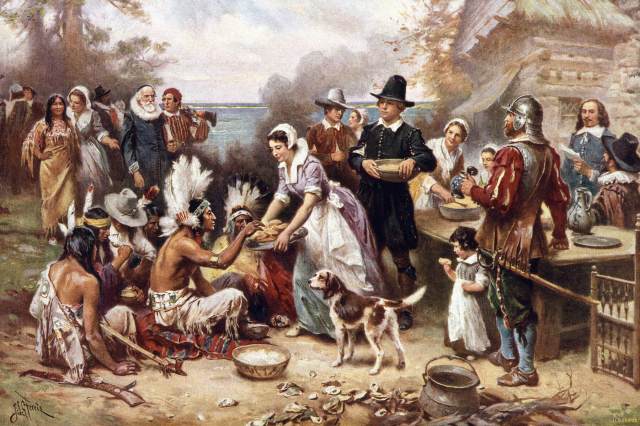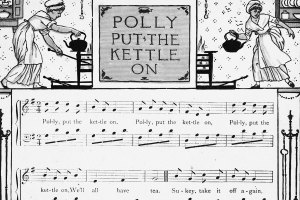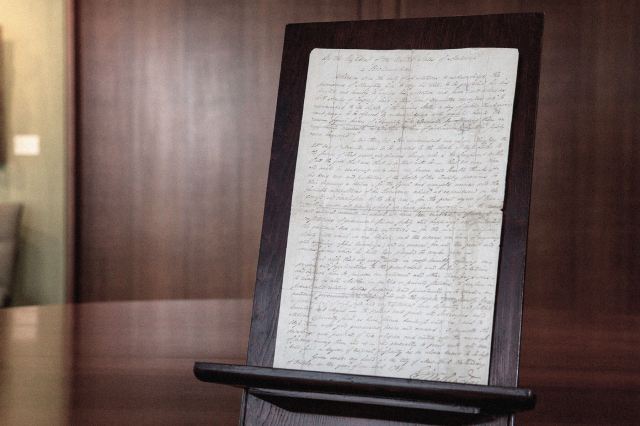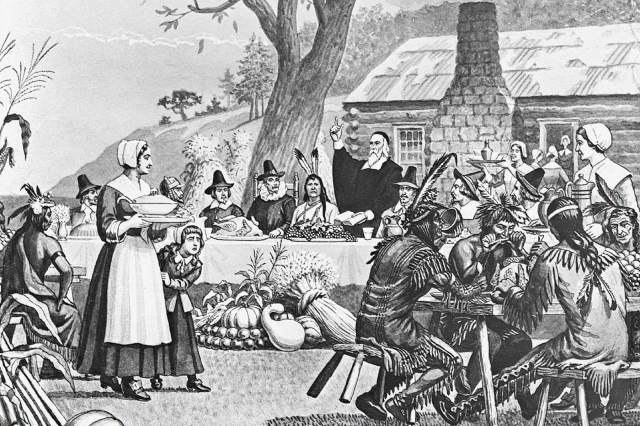5 Myths About the First Thanksgiving
The narrative of the American Thanksgiving holiday is based on what has traditionally been considered the first Thanksgiving in 1621, celebrated by the English settlers who arrived on the Mayflower in 1620 and the Indigenous people who helped them learn to survive in their new home. It’s an uplifting tale that has been shared across generations and woven into the history of the United States — but the real story is far more complicated and nuanced than most of us were taught in elementary school. That version downplays the truth about the violence and oppression experienced by Indigenous peoples at the hands of European colonists.
The familiar Thanksgiving story hinges on the romanticized idea that the Pilgrims and Native Americans came together in harmony to celebrate a bountiful harvest. Historical documentation from the era is limited, and the precise details of the now-famous 1621 feast and the relationship between the two groups remain the subject of scholarly debate. Still, the foundational myth of the Pilgrims’ first Thanksgiving continues to be central to the holiday’s narrative, even as historians strive to paint a more accurate and less idealized portrait. With that in mind, here is what we know about five popular myths around the origin of Thanksgiving.

Myth: The First Thanksgiving Was in 1621
The origin story of Thanksgiving details how the Mayflower left Plymouth, England, in September 1620 and arrived near Cape Cod two months later, after which time passengers established a settlement at what is now Plymouth, Massachusetts. Then, in 1621, the settlers celebrated their first successful harvest with a three-day feast that included the participation of many Wampanoag people, marking what we now consider the first Thanksgiving. However, other “days of thanksgiving” were held throughout the American colonies before 1621, such as in Popham Colony, Maine, in 1607, and in Jamestown, Virginia, in 1610, with an emphasis on prayer (compared with the nonreligious celebration of 1621).





















